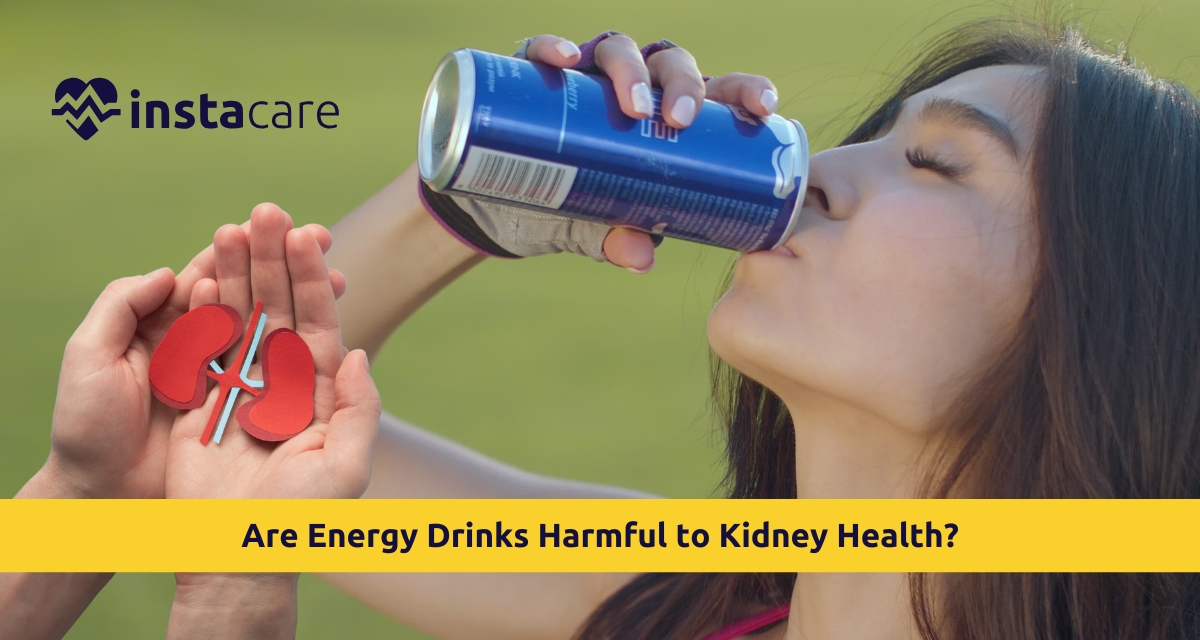Energy drinks receive more attention than in the past couple of decades, particularly among young adults and athletes, those who look for an energy boost immediately. However as consumption increases the health risks and long-term effects that people thought about included kidney health risks. One of the questions being whether energy drinks contribute to or have a role in the development or formation of kidney stones. This article delves into the relationship between kidney stones and energy drinks in depth, discussing their ingredients and physiological mechanisms, and finally making implications related to public health.
Understanding Kidney Stones
Kidney stones are solidifying of the mineral or
crystallization of salts in the renal parenchyma. They may be as small as a
grain of sand or or several centimeters in diameter and lead to obstruction.
There are numerous possible causes of the development of kidney stones and their
formation relies on various aspects such as diet, intake of fluids, and heredity
details. The most common types of kidney stones are:
- Calcium Stones
- Struvite Stones
- Uric Acid Stones
- Cystine Stones
Kidney Stones Symptoms
Symptoms of Kidney stones are severe flank, side or lower
abdominal pain Blood in the urine Painful urination Frequency and urgency
Nausea and vomiting Bad odor or cloudy appearance to the urine if left
untreated, the following complications may occur: and a Urinary Tract Infection
and Kidney Complication.
Ingredients in Energy Drinks
Energy drinks have been found to be containing some mixtures that are supposed to boost energy and intelligence. Among the most common ingredients in such drinks include:
- Caffeine
- Sugar
- Taurine
- B Vitamins
- Herbal Extracts
How Energy Drinks Lead to Kidney Stones
Dehydration: The big risk of energy drinks is related to its diuretic effects, particularly caffeine. Frequent and copious urination results to the dryness of the body; a factor that usually contributes to the concentration of the minerals in the urine: a factor that contributes to growth of the kidney stone.
- High Sugar Content: Majority of the above mentioned drinks
are highly associated with sugar intake, which leads to obesity and metabolic
syndrome; in case there is already a high propensity for formation of any type
of kidney stones.
- Calcium Excretion: There are evidence reports from few
researches that indicated caffeine overdose leads to extra urinary calcium
excretion, facilitating calcium stones.
- High consumption of sugar, especially fructose, raises the level of uric acid in the body, thereby increasing uric acid stones.
Research
Studies relating to energy drinks and kidney stones
Literatures on actual influence of energy drinks in the
development of kidney stones are yet at a few; but the following have shown
quite key risk factors:
A research published in the American Journal of Kidney Diseases documented that high intake of caffeine can be associated with heightened excretion of calcium which raises the risk of causing stones of calcium oxalate. A study conducted in Journal of Urology found the following: The subjects who often drank sugar-sweetened beverages, some of those were energy drinks, encountered higher rates of kidney stones.
Although these studies may indicate a possible association
between energy drinks and kidney stones, more comprehensive research is
required to establish causation definitively.
View More: How Can My Kidney Stone Remove Through Remedies
Lifestyle Factors Contributing to Kidney Stones
Diet and Hydration
Diet is one of the most vital aspects to be developed into
kidney stones. A diet high in sodium, oxalate-containing foods such as spinach
and chocolate, and animal proteins raises the possibility of stone formation.
Hydration prevents the occurrence of stones since urine becomes diluted.
Consumers of energy drinks usually tend to ignore hydration thus posing high risks.
Prevention Techniques
Hydration
Prevention of Kidney Stones: It also prevents a person by maintaining good hydration; an average consumption of more water reduces urine concentration. People should drink many liquids throughout the day that do not include dehydrated beverages like energy drinks.
- Dietary Changes: Salt Intake Reduction: Since excessive
sodium increases urinary levels of calcium, reduction will automatically result
in lessened urinary loss of calcium.
- Reduce Animal Protein: High animal protein intake may
increase the risk of uric acid stones.
- Limit Oxalate-Rich Foods: For calcium oxalate formers,
restriction of high-oxalate foods may be helpful.
- Keep sugar intake in check: Reducing sugar-sweetened
beverages, such as energy drinks, may help reduce risks.
- Regular check-ups : People who have ever had kidney stones should regularly visit their health care providers and reviewed and screened. Health care providers will lead the individual to recommendations based on individual health profiles.
Psychological Factors
Fear and Anxiety
Many people fear the diagnosis of having a kidney stone and
therefore tend to not seek medical attention. Some will not report their
symptoms because they downplay them in anticipation of them resolving
spontaneously. Thus, psychological factors create immense delays, especially in
scenarios where the symptoms do not end or even worsen.
Weak support networks are another contributing factor to
delayed diagnosis and treatment. People without any support from their family
or community will be isolated; therefore, they are likely to be less inclined
to seek medical attention. Support networks can create incentive for people to
seek timely medical checks and follow preventative measures.
Wider Implications for Public Health
High Energy Drinks Consumption
Over-consumption of energy drinks by an increasing age group
is a threat to health and impacts public health as well. The growing
availability and promotion should, therefore, make the probable ill effect more
apparent so as to shift more towards healthier alternatives.
Healthcare System Response
Time taken to analyze patients' beverage choices and diets
during regular follow-up consultations can be well undertaken by health
practitioners. In any patient history, use of energy drinks is sometimes asked
in order to get at risk individuals for the implementation of early
intervention.
Conclusion
While energy drinks are popular due to the quick pick-me-up
effect, it cannot be overlooked that their use is related to kidney stones. These
can be due to dehydration, high sugar levels, and caffeine effects. Hence, a
person must realize his habits, stay hydrated, and alter diet patterns to avoid
such stones.
A balanced diet, proper hydration, and healthy lifestyle are
therefore important ways of preventing kidney stone formation and overall
health. However, for those who feel concerns towards their kidney health or
energy drink usage, they should seek a healthcare provider's advice regarding
the issues at hand.
Please book an appointment with the best Nephrologist in Lahore, Karachi, Islamabad, and all major cities of Pakistan through InstaCare, or call our helpline at 03171777509 to find a verified doctor for your disease.







